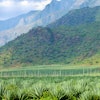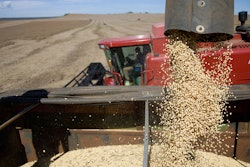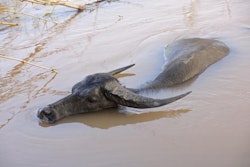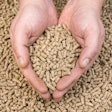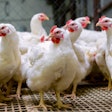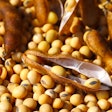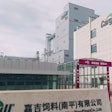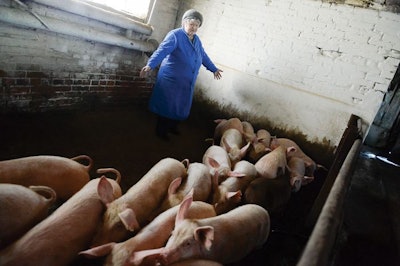
Russian phytogenic feed additive (PFA) development has been stalled for several decades since the dissolution of the Soviet Union; however, the country is now prioritizing phytogenic research and investment due to rising antibiotic resistance.
Recent Russian Academy of Science research, conducted in conjunction with the Health Ministry, showed that 33 percent of available antibiotics are not effective in treating human diseases any longer, and even the most modern drugs struggle to kill superbugs.
“Our research proves that some agricultural animals show resistance to sixth-generation antibiotics, even though they have never been used in agriculture,” says Irina Donnik, professor of bioscience, Russian Academy of Science. “These ‘last-hope’ antibiotics so far are being kept out of wide use. Nevertheless, we discovered that up to 10 percent of agricultural animals have superbugs that are resistant to these drugs. It is unclear how this could be possible.”
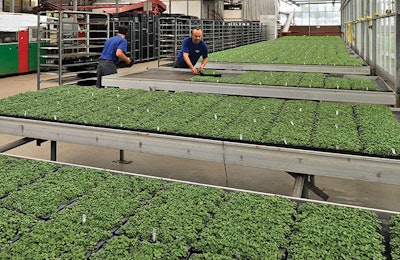
Russia wants to start first commercial production of phytogenics. | Russian Association of Seeding Material Producers
Unregulated antibiotic use
New superbugs emerge because antibiotic usage continues to be unregulated and, as a result, virtually uncontrolled in Russia.
The Eurasia Economy Union’s technical regulation on safety of food products envisages that an animal should not be fed with antibiotics right before the slaughter, and there must be no antibiotic residues in livestock products on the grocery shelves. This means, however, that during the lifetime of an animal, the farmer basically is free to use as much antibiotics as he wishes.
According to Ekaterina Izhmulina, professor from the Kemerovo University in Russia, there are many farmers in the country who would be happy to replace antibiotics with some alternatives, such as, for example, PFAs. All imported PFAs are very expensive in Russia and, to date, affordable Russian-made products are not available on the market. However, this is set to change in the next two years.
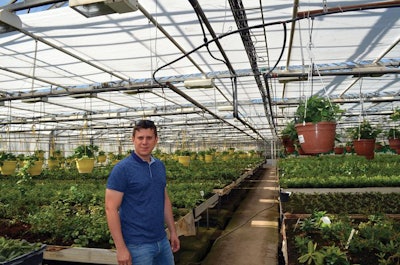
Russian scientists breed 20 herbs to produce various phytogenic products. | DonDolina
Siberian medical herbs
Russian scientists have focused their research on Russian medical herbs common in Siberia. Kemerovo University has already chosen 20 different herbs, conducting thorough studies on each to determine which may be the most effective.
“We plan to produce extracts of medicinal plants using water-extraction technology, which is owned by the Kemerovo Pharmaceutical Factory,” says Izhmulina. “We also use low-temperature vacuum drying, as it is necessary to save all useful substances. On the basis of extracts, we will create multi-component phytogenic feed additives.”
The preliminary research shows that some Russian medical herbs “could contain more valuable components as compared to those cultivated in Europe,” they report.
“For example, we have been studying the effectiveness of the winter and summer savory and we managed to get 51 percent of carvacrol and thymol on dry matter,” says Vladimir Pashtetsky, the director of the Crimean Agricultural Research and Scientific Institute and one of the authors of the project. “We know that our European colleagues’ figure does not exceed 41 percent.”
“In autumn, we will get the result of the trials on carvacrol and thymol extraction from the green mass of the plants,” Pashtetsky says. “According to our expectations, the extraction will contain at least 75 percent of the organic compounds we need.”
There are many plants in Siberia that for centuries have been used in medicine by the indigenous people but, for various reasons, have been rejected by the conventional health care industry, according to the scientists. These plants include burnet (Sanguisorba), spreading pasqueflower (Pulsatilla patens), maral root (Rhaponticum carthamoides), bay willow (Epilobium angustifolium), Siberian clematis (Atragene sibirica L) and some others.
Although some of these plants could be found in Europe and other regions of the world, it is believed that the Siberian variety may have slightly different nutritional value due to differences in climate conditions.
At the moment, the Crimean Institute is breeding several medical herbs on 1,000 hectares. The scientists have already developed and produced some phytogenics that may help replace antibiotics. Trials are ongoing.
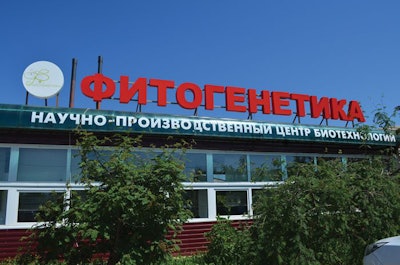
Phytogenic Scientific Center in Russia | DonDolina
First phytogenic feed additive factory
Russian scientists plan to use their findings to establish the country’s first factory for PFA production. The facility has a rather low investment cost of only US$3.5 million, according Vladimir Golubkov, the general director of the Kemerovo Pharmaceutical Factory, the company that seeks to become the investor of the project.
If all goes well, the new facility will manufacture feed additives for all agricultural animals, including poultry, pigs, cattle, rabbits, sheep and goats, plus some pet food additives. The investor plans to release the first products in 2019.
Irina Ganeeva, one of the creators of the project, says the factory would have a representative office in the Skolkovo Innovation Center. Skolkovo is the Russian Silicon Valley, and by carrying its label, the phytogenics from Siberia would have not only the state support, but also the better promotion among the customers in the domestic market.
Ilya Sereduyk, the governor of Kemerovo region, has already promised all possible support of the regional authorities to the project. He estimated that the new factory could meet up to 80 percent of the current Russian demand for phytogenics.
The scientists believe that the factory could repay its investment cost within a few months. In the future, its production capacity could be expanded, as the demand on the Russian market is expected to be enormous.
Export in the pipeline?
So far, the representatives of the project speak carefully about its export potential. The scientists commented that this matter “is up to investors,” while the Kemerovo Pharmaceutical Factory has declined to make any comments on this issue.
Alexey Ivanov, a member of the Russian Union of Feed Producers, said international promotion of this product is possible, but it would not be easy.
“The competition on the international market of feed additives is tough, and Russian phytogenics must prove their safety and effectiveness before they can be authorized by bodies" like the European Food Safety Authority or the U.S. Food and Drug Administration, Ivanov says. “Russian is a net importer of feed additives, and it exports almost nothing in this field. It would take years, if not more, before we would be able to see the success of these products on the foreign markets.”

